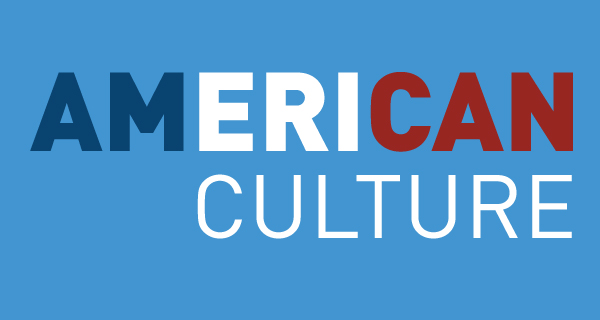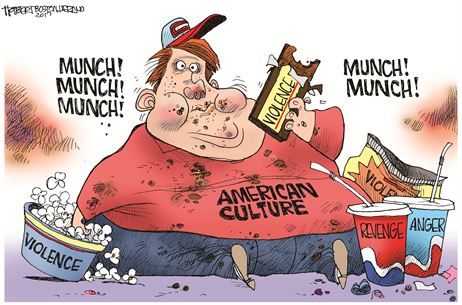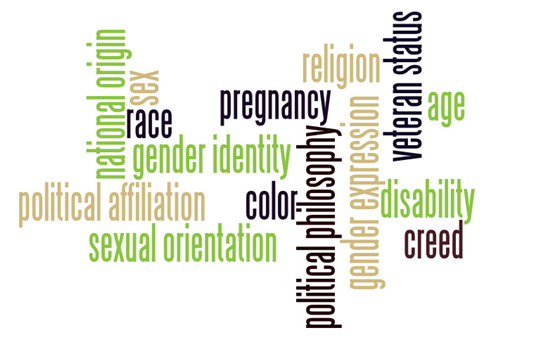
American culture is comprised of worldwide cultures and of no cultures at all.
Since the founding of America, this land has been the land of immigrants. Yet, many people in power and in society try to erase the existence and the contributions that these great individuals have made. For example, Thanksgiving is celebrated every year, yet we often forget that almost the entire Native American population was massacred on that day in history.
As stated in the text, television is a basic part of American culture, along with sports, commercials, and documentaries, but the authors also state how even television remains influenced by multiple cultures and varying interests (Nealon and Giroux, 54).
When thinking about American culture, two polarizing views come to mind.

One view contains the white, the rich, the overly-proud, and the unintentional (or intentional) ignorance. Many Americans are only concerned about what is happening in the US instead of worrying about what is happening overseas, even if America is one of the reasons why other countries are hurting by our own hand. This view is partly shaped by Trump and his supporters as their concept of Americaness holds no diversity. And what about things that exist in America more than in other countries – like hate speech, largely-sized meal portions, and mass shootings in schools? Does this add to its “culture”?

The second view contains different races, ethnicities, religions, and socioeconomic statuses. It contains policies that help the underprivileged and the sometimes forgotten, such as DACA, Welfare, and Mental Health Reform Legislation. America was built on the ideas, abilities, and perspectives of people from around the world. They are part of the reason why America continues to flourish in certain aspects. Immigrants are hard-working contributors, and some have played a greater role in increasing America’s richness than those who were born here.
Many Americans feel the need to identify as American for the privileges that come with it – merely because it makes them feel good and appear powerful. But when it comes to things like food, art, clothing, and advances in technology and medicine, they want and praise it, while not acknowledging who exactly is making those contributions to American society. Even when it comes to friendships – some may use this as a way of appearing accepting of others, while they internally feel otherwise.
Example: Using the N-word or making racist remarks and attempting to cover it up by saying, “I’m not racist; I have friends who are black.”
As it has been said in the past by many, people want clean floors and nice meals but don’t want to pay janitors and waiters. This relates to the tension between wanting the things that immigrants bring, but not wanting the immigrants, themselves. Being an American to some means power, even to the point where some give up their background to fit into the white persona.

Multiculturalism is defined as either an attempt to separate people instead of bringing them together, which signals a decline in the common identity of “American-ness,” or as the increase of identities under the common rubric of “American”, which signals a positive change (Nealon and Giroux, 56). The authors touch on both of the views presented above – one where it divides the nation and focuses on the elite, and the other where it unites everyone as one, making American culture a culture that is shared across different nationalities.
The authors also present the topic of exclusion and how there is “no coherent cultural context that will include “everyone”” (Nealon and Giroux, 56). This is an interesting thought as individuality and originality remain significant aspects of our identity.
Source(s):
Nealon, Jeffrey T. and Giroux, Susan S. The Theory Toolbox: Critical Concepts for the Humanities, Arts, and Social Sciences. Lanham: Rowman & Littlefield Publishers, 2003. Print.